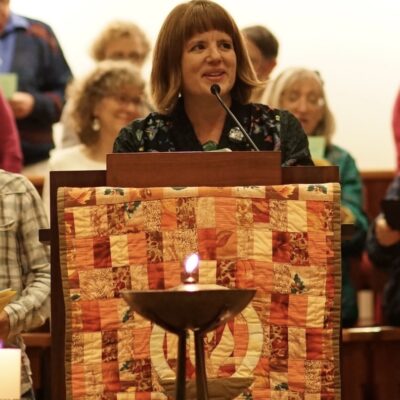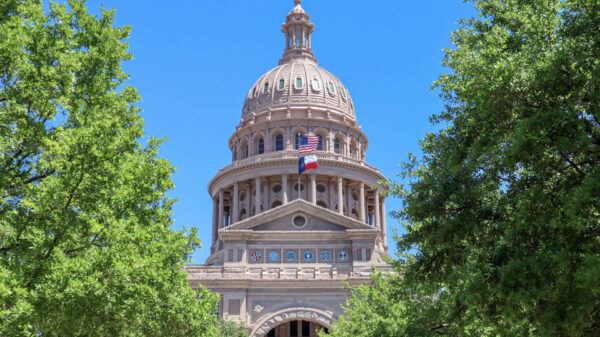The same lawmakers banning books and censoring curricula now want to dictate what students worship.
Like so many Texans, I come from a community of different religious backgrounds. I am a Unitarian Universalist minister, but my beloveds are Christian, Jewish, Muslim, atheist, agnostic, and more.
I cherish my diverse family, including my son, who claims no religion. And it breaks my heart when I pick him up from school and hear he has felt belittled and picked on this year because he doesn’t share the same conservative Christian beliefs as some of his classmates.
Now, Texas politicians want to further empower religious discrimination and bullying by forcing state-sponsored religion into our public schools.
Historically, the best way to protect religious liberty was to keep the government far away from religion. That’s why the separation of church and state, enshrined in the First Amendment of the U.S. Constitution, has been an unimpeachable touchstone. More recently, though, the far-right majority of the U.S. Supreme Court has tried to chip away at this principle.
During this legislative session, Texas politicians have launched their own crusade in public schools to impose a singular brand of Christianity above all other religions. They’re advancing a myriad of bills, driven by conservative Christian-based organizations, that seek to indoctrinate school children with state-sponsored religion. These bills would create a hostile learning and work environment for the majority of Texans who do not subscribe to their right-wing version of Christianity, as well as LGBTQIA+ educators and students, including my daughter. These dangerous bills include:
- Senate Bill 1515, which requires the display of the Ten Commandments “in a conspicuous place in each classroom of the school.” The bill specifically endorses an edited version of the Ten Commandments taken from a Christian translation of the Hebrew Bible.
- Senate Bill 1396, which authorizes school boards to require a period of prayer and Bible reading in public schools. These activities not only infringe on the rights of students who practice their faith differently or don’t subscribe to any religion, but they will also undoubtedly infringe on critical time for education. If the bill passes, religious activists would feel empowered to run for school boards expressly to create in-school time for religion and prayer in a public setting.
- Senate Bill 1556, which emboldens public school employees to claim a right to pray at any time, without interference or objection from the school. And schools may be reluctant to stop them.
- Senate Bill 763, which allows so-called “chaplains” to serve as school counselors. These “chaplains” will not need to meet any of the certification or advanced education requirements that actual school counselors are currently required to complete. During debate on the issue, a legislator noted that the largest proponent for the bill views this policy as a way to “infiltrate our public schools” with Christian ideas. As Texas students face isolation, poverty, and the threat of school shootings, I shudder to think of the potential consequences of depriving them of professional counseling support. I have served as an interfaith chaplain myself, and I can tell you firsthand, a chaplain is not a substitute for a school counselor.
The purpose of these bills is clear: The same lawmakers trying to control what students think by banning books and censoring curricula now want to dictate what students worship.
Those scared of progress always fight against it. As our state becomes more diverse in race, culture, and religion — people of color account for more than 90% of population growth in Texas in the last decade — a small group of white, far-right Christian politicians who fear losing power are frantically trying to mold young Texans in their image and erase anyone who looks or thinks differently.
As a religious leader, I’m disgusted by this assault on religious freedom and the right of all religious communities to conduct their own religious education. As a mother, I’m angry that these politicians believe they know how to raise Texas children better than their own parents do. As a former public school teacher, I’m appalled by this erosion of public education as a means of preparing young people to thrive in our diverse state. And as a fourth generation Texan, I refuse to accept this government intrusion into our private lives that threatens the very independence we hold dear as Texans.
Thankfully, I’m not alone.
This is not who we are as Texans and it’s not what we want. Our legislators vow to represent all of us. Now is our moment to band together, across faiths and no faith, to demand they do that — by keeping religion out of our public schools.
Join me in calling on our legislators to uphold public education and the separation of church and state — and letting them know that we’ll vote them out if they don’t.



